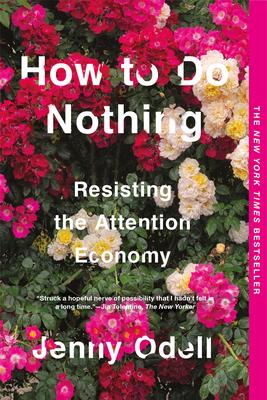Halfway There: 3 Ways to Use Social Media to Build a Bridge to Blogging
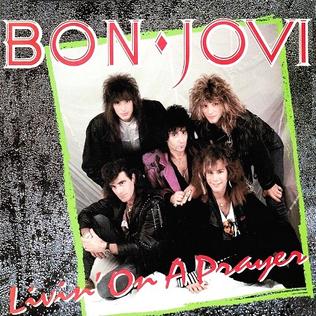
While social media as we know it may be on its way to obsolescence, that doesn’t necessarily mean you’re living on a prayer. In fact, I would argue, all those years of comments, posts and retweets have you perfectly poised for transition to a brave new era of online connection. Half of everything you need to know about posting and sharing your ideas of your own platform—as opposed to one helmed by a megalomaniac hooked on algorithms that make the world worse—you’ve learned already through years of social media use.
Here are three key ideas you can use to build a bridge to blogging.
- Continue to embrace the celebration of all things ordinary: You really don’t really need an occasion to post to Instagram, as demonstrated by my habit of posting a photo of my teacup most days, an illumination of the small ceremonies inherent in our quotidian routines. This could be construed as a criticism of the platform, perhaps (“All it is is people posting pictures of their lunch.”) but it’s actually one of my favourite things about social media, that you don’t really have to go out of your way to generate content. And the same is true for blogging. Share the world as you see it, from right where you are, a singular point of view that is yours and nobody else’s.
- Promote your work with pithy posts: I learned this one from digital-marketing pro Avery Swartz when I was asking her about promoting my novels on my website, whether I should be using a sidebar, etc. etc. I already knew that being a blogger made me better on social media but I’d never considered it could work the other way around until she told me to share about/promote my books on my website the same way I do on Instagram, short and snappy posts like this one. (Sidebars are so two decades ago anyway…)
- Cross-post your best stuff: It’s true, social media is the quickest way to get your writing in front of readers, and the dopamine hits of their “likes” is most rewarding. But social media is also so ephemeral, and it feels wrong for me to be pouring my heart and soul into writing unpaid content for the benefit of Mark Zuckerberg. And so I’ve taken to cross-posting my most thoughtful/meaningful posts to my blog, which means they live in a place that’s mine where content can’t just disappear. They also reach a slightly different audience there. And even better? I’ve taken to writing these posts on my blog first where my writing benefits from an actual keyboard and unlimited characters, and then cutting and pasting to Instagram for the benefit of readers there. The very definition of #BacktotheBlog, and you know what? It feels great.
And now here’s something cool: I’m giving away free tuition for my self-guided blogging course FIND YOUR BLOGGING SPARK for one student this winter. To be entered, sign up for my Blog School Newsletter. (If you’re already on the list but want to be considered, send me a message and let me know!) I will be making a draw at the end of January.
Build a Blog!
4 Books for Bloggers
How to Do Nothing, by Jenny Odell
You’ve probably already heard about Jenny Odell’s How to Do Nothing, a book that counters the constant buzz of online life with a exploration of how to return to true focus and connection. It’s a book that’s relevant to bloggers for how it underlines that a lack of context is what makes social media so difficult to navigate, the equivalent to screaming into a noisy crowded room. And what are blogs if not context? You have an idea of who you’re talking to. Your readers know who they’re reading. A return to context and real connection is inspiring and refreshing.
*
Beginners: The Joy and Transformative Power of Lifelong Learning, by Tom Vanderbilt
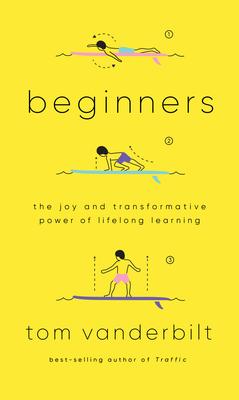
The thing about blogging is that you have to begin again every time you do it, and I think a successful blogger requires a willingness to remain engaged with and curious about the world in order for the blog to be enjoyable and sustainable. (The blogger who only writes about everything she knows already very fast runs out of material.) Vanderbilt’s exploration of lifelong learning is a fun and engaging read, and might inspire you to take a trip outside your comfort zone, which is always a great way to find something to write about.
*
Phosphorescence: A Memoir of Finding Joy When Your World Goes Dark, by Julia Baird
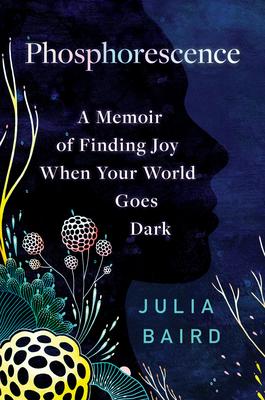
Not a straightforward memoir, but not just reportage either, instead a fascinating hybrid, a nice companion to Katherine May’s Wintering, but it drew me in so much more, and is uncannily about many of my own fascinations, among them, swimming, teapots, uncertainty, and why it matters to have fascinations at all.
Phosphorescence is a light from within, and Baird writes about how to seek such light, how to even find it, from the perspective of a woman who’s survived cancer, its return twice more, brutal and painful surgeries and recoveries, on top of a life spent as a patriarchy-fighting Anglican, reporter, historian, biographer of Queen Victoria, cold water swimmer, and avid collector of friends.
And OH, how she writes about friendship. “The cornerstone of my resilience.” Her prose is that gorgeous, and I loved this book at the sentence level, as the ideas and connections blew my mind.
And the disconnections too—this book is strange and meandering, curious in its progression, and in the most wonderful way, it reminded me of blogging, albeit with impeccable polish: “After all this exploring, we should be gazing steadily outward, beginning to find others again, and the brilliance of the world outside our doors.”
*
Good Burdens: How to Live Joyfully in the Digital Age, by Christina Crook
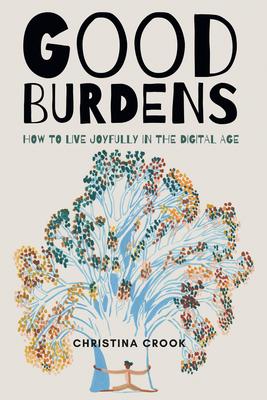
If my blogging course came with a text book, Good Burdens would be it. It was so exciting for me to see so much of my own ideas about living well online (and about how the internet can make your life richer!) in this book, but it also made me think some more about these ideas and I learned a lot from Crook, whose first book was The Joy of Missing Out: Finding Balance in a Wired World. Where to focus our attention, how to foster real connection, why the “good burdens” of our lives give us meaning, why does nature matter, how can we make sure our online choices are deliberate ones? Lots of great questions to ponder and work through, an ongoing project that (like our blogs!) would be nice to continue forever.
Julia Zarankin: From Birder, to Blogger, to Book!
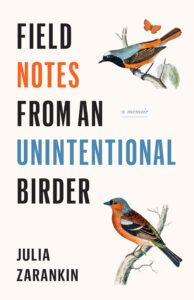
A highlight of my Fall so far has been celebrating the launch of my friend Julia Zarankin’s memoir Field Notes From An Unintentional Birder, a book I’ve been waiting to get my hands on—and it lived up to all my expectations.
In this Q&A, Julia talks about how blogging is like birding, how blogging became part of her process as a birder and a writer—and also about what happened when her blog disappeared.
Kerry: As someone who thinks about blogging a lot, I kept seeing parallels between blogging and birding as I read your book, how they teach similar lessons. As someone who has done both, what’s your take?
Julia Zarankin: More than anything, birding has taught me to see in a new way. So much of birding revolves around being attuned to the present moment and to really open your eyes to what’s in front of you, and really focus on detail. In a sense, blogging is also very much about connecting with specific moments of your daily life. To me, both are a form of active engagement with whatever it is you’re passionate about. I see birding and blogging as an antidote to despair, because when you’re looking closely and finding beauty in the ordinary, you’re bound to see the world with a little more brightness & potential.
“I see birding and blogging as an antidote to despair.”
Kerry: What role has blogging played in the journey to FIELD NOTES?
JZ: I started blogging shortly after I started birding. Everything about birding felt so strange and foreign and wonderful to me, and I wanted to understand it better and process it. So I started writing a blog called BIRDS AND WORDS to make sense of this new (somewhat strange) hobby of mine. My blog provided me with the ideal (and very low stakes) places to test out my ideas. Initially my blog was all about the frustration of being a beginner birder (and getting most things wrong), but slowly it evolved into something deeper, where I was seeing connections between birds and the rest of my life (and intellectual interests). I think it’s safe to say that I wouldn’t have had the confidence to write FIELD NOTES had I not tested out some of the ideas on my blog. Also, I realized, while experimenting on my blog, that writing about birds didn’t have to be 100% serious.
Kerry: What were your initial challenges as a blogger, in particular as someone trained in academia?
JZ: It took a while to let go of the idea that the words that appeared on my blog had to be polished gems of perfect prose. I remember writing and rewriting my first blog posts until I felt I’d gotten them just right. And then for days afterwards, I obsessed over my analytics and cried when I saw that no matter how hard I worked on perfecting my blog posts, they were still only read by 7 people in Mumbai.
(For a while this made me cry and I gave up on my blog several times—what’s the point?—but I couldn’t quite let it go; something about it still made me smile, and I knew the posts I was writing, while imperfect and with the occasional spelling/grammar glitch, had an energy to them, and I kept coming back to the blog, no longer for those 7 mystery people who were likely bots, but for myself.)
And in a way that realization that nobody read my blog freed me up to experiment more, to toss my ideas of perfectionism to the side and just write things FOR MYSELF in a way that engaged me. Since nobody was reading, I could just be myself, right? Kerry’s mantra, BLOG LIKE NOBODY’S READING, is the wisest thing I’ve had to learn for myself (over and over again). And when I stopped trying to make my blog posts perfect, they were also a lot more fun to write!
True story: I actually used my blog posts as writing samples for a blogging gig (paid!) I had at Ontario Nature for a number of years.
“And in a way that realization that nobody read my blog freed me up to experiment more, to toss my ideas of perfectionism to the side and just write things FOR MYSELF in a way that engaged me.”
Kerry: What helped you make blogging into a habit?
JZ: Initially, I began with the goal of writing three posts/week, but as things got busier, I transitioned to writing one post/week.
Kerry: Blogs don’t have to be forever—they’re a moment in time. Your blog was lost in some website SNAFU a few years ago, right? (HOT TIP: Blog at your own domain and back up your stuff!)
How did you make peace with your blogging life ending in such a way?
JZ: Three years ago, my blog disappeared. It vanished from the earth along with its platform. But the funny thing is that it all ended just as I was beginning to work on my book in earnest, and actually conceive of it as a book with a narrative arc and not just a collection of fragments. So in a sense, the blog had served its purpose and it was a sign for me that it was time to say goodbye to it and apply the lessons I’d learned—and especially the energy with which I’d started to write—to a larger project. I always saw my blog as a (very low stakes) place where I could test out my ideas and have fun with writing.
Thank you, Julia! I love this book. It’s available now where all good books are sold—and I think any blogger will find a lot to appreciate in its pages.
Betty Cooper Was a Blogger
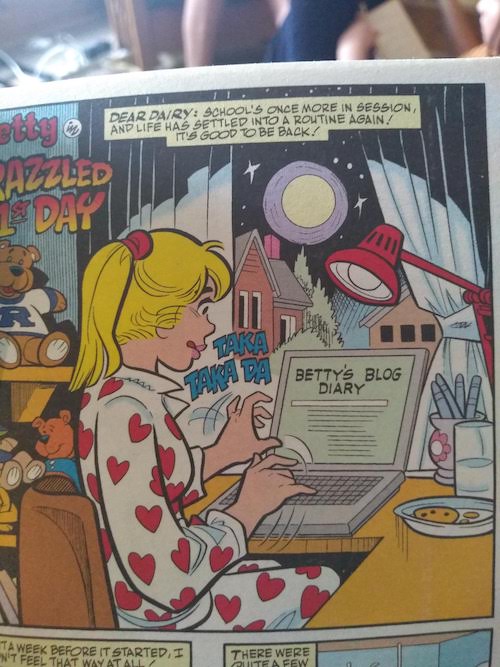
“Dear Dairy,” though. She wouldn’t be the first one to make that mistake…
A Kids’ Guide to Blogging
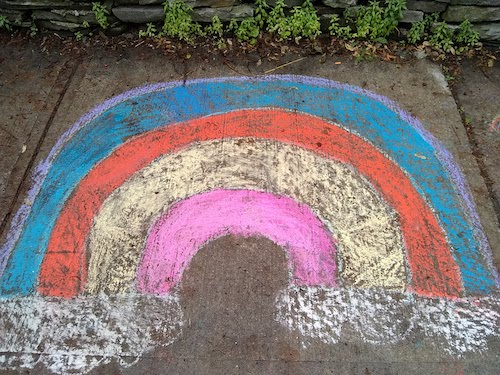
Blog. Pronounced BLAAAAHG, but there is nothing blaaaaah about it. If you’ve ever been online, then you already know what blogs are, because blogs are where platforms like Youtube and TikTok and others got the whole idea of creating space for ordinary people to tell stories, share art, ask questions, and do weird and random things online, to be their most original and truest selves. In short, if it’s on the internet and it’s interesting, then blogs were doing it first.
8 Reasons Why You Should Start a Blog Right Now
- Because blogs are free! Sign up for one at www.blogger.com or https://wordpress.org/, or have your grownup sign you up through their email account if you don’t have your own.
- Because blogs are educational! Here is a chance for you to be creative, to work on your storytelling, your typing, your spelling, etc. Making a blog is also quiet, which is useful if you’re stuck at home with your entire family (unlike, say, taking up the accordion).
- Because blogs are safe. You can set your blog to be password protected and invite the people who care about you (friends and family) to read what you’re writing.
- Because the people who care about you are probably bored, and will be happy to read your posts during these stressful times. Honestly, it’s kind of a public service.
- Because blogs are about connection, which is so important at a moment when we’re keeping our distance from each other. Your blog is a great way for you to be connected to your friends. You and your friends could even make a blog together, each of you adding posts of your own and sharing your different points of view.
- Because a blog is a perfect place to tell your story and share your feelings. Together, we’re all living through an extraordinary moment in history, and making a record of your experience will be valuable for you and others.
- Because a blog is for exploring, even when you’re going nowhere. I use my blog as a place to ask questions, figure out answers, to think about the things and ideas that obsess me, and express what I am passionate about.
- Because a blog is generosity. To make a blog is to point to something wonderful, and tell the world, “Hey! Take a look at this.” Blogging is sharing, which is always good. (Unless we’re talking about infectious germs. And we’re not)
What Should You Blog About?
- Pick a topic that you’re obsessed with (octopuses, movies, the environment, Shawn Mendes) and blog about that. Share news and things you discover about your topic.
- Blog about the things you make or build. Do you like art? Do you like Lego? When you finish your creation, post a photo of it and write about what you made.
- Make a pen-pal blog where you and your friend write letters back and forth to each other.
- Write a blog that is a diary, a letter to the world about what you and your family are going through right now.
- An imaginary travel blog! While we’re stuck at home, it might be fun to write about your favourite places to visit in your town or city, or even research places you’ve never been before and write posts that describe those places. What did you see? What did you eat?
- A food blog! Get busy in the kitchen and blog about your creations. (Please remember to wash the dishes when you are done.)
- A book blog. Are you reading a lot these days? Share your book recommendations and perspectives on the books that you’re reading.
- A gratitude blog, or a survival blog. How are you getting through this hard time? What is helping you feel better? What are you grateful for? Share your tips and ideas for feeling better when things are difficult.
- ANYTHING ELSE YOU WANT YOUR BLOG TO BE. Be creative, and write the kind of blog that only you can write. Make it as weird and wacky as you are.
What Should You Blog About?
- Pick a topic that you’re obsessed with (octopuses, movies, the environment, Shawn Mendes) and blog about that. Share news and things you discover about your topic.
- Blog about the things you make or build. Do you like art? Do you like Lego? When you finish your creation, post a photo of it and write about what you made.
- Make a pen-pal blog where you and your friend write letters back and forth to each other.
- Write a blog that is a diary, a letter to the world about what you and your family are going through right now.
- An imaginary travel blog! While we’re stuck at home, it might be fun to write about your favourite places to visit in your town or city, or even research places you’ve never been before and write posts that describe those places. What did you see? What did you eat?
- A food blog! Get busy in the kitchen and blog about your creations. (Please remember to wash the dishes when you are done.)
- A book blog. Are you reading a lot these days? Share your book recommendations and perspectives on the books that you’re reading.
- A gratitude blog, or a survival blog. How are you getting through this hard time? What is helping you feel better? What are you grateful for? Share your tips and ideas for feeling better when things are difficult.
- ANYTHING ELSE YOU WANT YOUR BLOG TO BE. Be creative, and write the kind of blog that only you can write. Make it as weird and wacky as you are.
There is only one rule in blogging: HAVE FUN.

